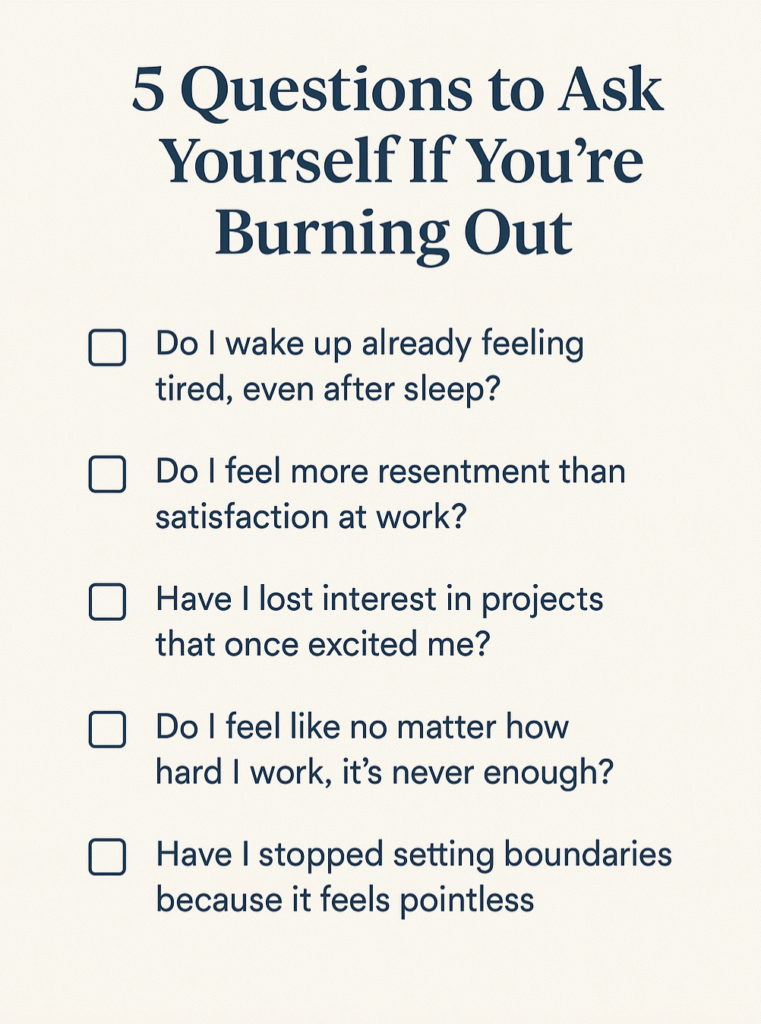Burnout is no longer just a buzzword—it’s a breaking point. And for women, it’s a breaking point that comes sooner and cuts deeper. Between caregiving responsibilities, workplace bias, and the relentless expectation to “do it all,” women are burning out at alarming rates.
That’s why it’s time for honesty. A real talk for women in the workforce is long overdue—not one filled with empty advice about self-care, but one that acknowledges the systems at play and the responsibility leaders have to change them.
Why Women Burn Out Faster
Burnout is not a personal failure—it’s the byproduct of systemic issues. For women, the triggers are sharper:
- The Double Shift: Professional responsibilities plus the bulk of unpaid caregiving at home.
- Invisible Labor: Office housework—taking notes, organizing meetings, smoothing conflicts—that’s rarely recognized or rewarded.
- Bias and Barriers: Being held to higher standards for promotions and leadership roles.
- Flexibility Myths: Companies promising “balance” but penalizing women who take advantage of it.
Burnout is not about women working too hard—it’s about workplaces demanding too much while giving too little in return.
What Burnout Looks Like
- Constant exhaustion, no matter how much rest you get.
- Feeling detached from your work or cynical about your contributions.
- A decline in performance despite working harder than ever.
- The sense that you’re always “on,” with no true time off.
For women, it often shows up as quiet resignation: scaling back ambition, turning down opportunities, or silently leaving organizations that refuse to change.

5 Questions to Ask Yourself If You’re Burning Out
Use this quick self-check to assess where you stand:
- Do you feel anxious or depleted every Sunday night?
- Are you consistently working through lunch or after hours to keep up?
- Do you feel unappreciated for the unseen efforts you put in?
- Are you avoiding activities you once enjoyed, like hobbies or social events?
- Have you started downplaying your goals or ambition?
If you answered “yes” to more than two of these, it may be time to step back, seek support, and evaluate what needs to change.
A Real Talk: What Needs to Change
A real talk for women in the workforce means calling out what leaders often avoid:
- Stop rewarding overwork. Promotion should be about results, not hours logged.
- Recognize caregiving as part of reality. Normalize flexible schedules and parental support without penalty.
- Value invisible labor. Reward mentoring, team-building, and collaboration—not just individual output.
- Create cultures of psychological safety. Women must feel safe saying “I’m overwhelmed” without fearing career consequences.
This isn’t about women toughening up. It’s about leaders stepping up.
How Women Can Protect Themselves in the Meantime
Until systemic change catches up, there are strategies women can use to safeguard their well-being:
- Set Boundaries Clearly: Saying no is not weakness—it’s leadership.
- Claim Your Wins: Keep track of achievements to combat the pressure to over-deliver.
- Find Allies: Peer networks and mentors can help share the load and advocate for fairness.
- Redefine Ambition: Growth doesn’t always mean more hours—it can mean more impact with less sacrifice.
- Seek Workplaces That Align with Your Values: Companies that practice—not just promise—flexibility and equity.
Real Stories of Burnout and Recovery
The Consultant: She reached a breaking point after years of nonstop travel. When she finally drew boundaries, her clients respected her more—not less.
The Manager: After burning out in a company that punished flexibility, she switched jobs. “I thought stepping back would ruin my career—it saved it.”
The Entrepreneur: She realized she had replicated corporate overwork in her own business. Her pivot: hiring help and redefining success beyond constant hustle.
Key Takeaways
- Burnout is not an individual weakness—it’s a workplace problem.
- A real talk for women in the workforce requires leaders to take responsibility for changing systems.
- Women can protect themselves in the meantime by setting boundaries, redefining ambition, and finding workplaces aligned with their values.
Final Thought
Burnout will not be solved by women taking more bubble baths or downloading more mindfulness apps. It will be solved when organizations stop demanding women sacrifice themselves for the sake of productivity.
Because a real talk for women in the workforce is not about teaching women to survive broken systems—it’s about demanding better ones.
